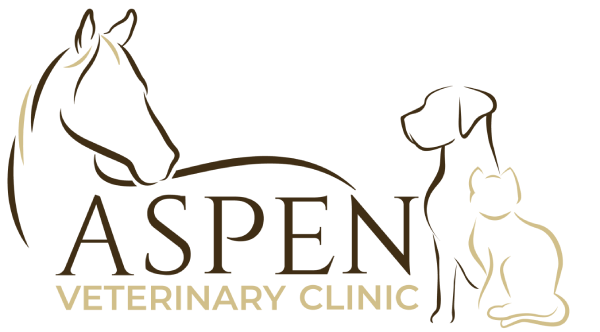Cranial Cruciate Ligament Injuries and Treatment for Dogs at Aspen Veterinary Clinic
A torn cranial cruciate ligament (CCL) is the most common knee injury in dogs. Similar to the ACL in humans, the CCL plays a crucial role in keeping your dog’s knee stable and pain-free. When this ligament is damaged, whether it’s a partial tear, a complete rupture, or ongoing cranial cruciate ligament disease (CCLD), it can seriously impact your dog’s comfort and mobility. At Aspen Veterinary Clinic, our experienced team offers advanced diagnostics and tailored treatment options to help your dog recover and return to the activities they love.
What Is a Cranial Cruciate Ligament Injury in Dogs?
The cranial cruciate ligament connects the femur (thigh bone) to the tibia (shin bone) and helps stabilize your dog’s knee joint, or stifle. When this ligament is damaged, it can cause pain, swelling, lameness, and over time, arthritis. Unlike in humans where cruciate injuries usually result from trauma, CCL injuries in dogs often develop gradually from ligament degeneration, breed predisposition, poor physical condition, or excess weight.
Injuries and diseases of the CCL can vary from mild partial tears to full ligament rupture. Without proper care, these injuries can lead to joint instability, meniscal damage, and significant arthritis.
Signs of CCL Injury in Dogs
If your dog is experiencing a cranial cruciate ligament injury, you may notice:
- Limping or lameness in a back leg
- Difficulty rising or jumping
- Sitting with the leg extended to the side
- Swelling around the knee
- Reluctance to exercise or decreased activity
Some dogs may shift their weight off the affected leg when standing or develop muscle loss over time.
Dogs at Risk for CCL Injuries
Certain breeds are more prone to cranial cruciate ligament disease, including:
- Labrador Retrievers
- Golden Retrievers
- German Shepherds
- Rottweilers
- Newfoundlands
- Pitbulls
Obesity and sudden activity from a more sedentary dog can also increase risk. Some dogs show a gradual worsening of lameness as the ligament deteriorates, while others may appear fine until the ligament fully ruptures after something as simple as a minor misstep.
Studies suggest about 50% of dogs that rupture the CCL in one leg will eventually injure the other leg. Research has also shown increased risk in dogs neutered before 12 months of age.
How We Diagnose CCL Tears in Dogs
At Aspen Veterinary Clinic, we combine a thorough orthopedic exam with imaging to diagnose CCL tears and other knee injuries in dogs. Our digital X-rays help us assess joint health, plan surgical procedures if needed, and rule out other conditions such as fractures or bone tumors.
Treatment Options for Cranial Cruciate Ligament Injuries
Surgery for CCL Injuries in Dogs
Surgery is typically the most effective way to restore stability to the knee and slow the progression of arthritis. At Aspen Veterinary Clinic, we offer:
- TPLO surgery (Tibial Plateau Leveling Osteotomy) — the gold standard for stabilizing the knee in large, active dogs. TPLO surgery changes the biomechanics of the knee, eliminating the need for the damaged ligament. (Learn More About This Procedure at Aspen Veterinary Clinic.)
- Extra-capsular suture stabilization (lateral suture technique) — only occasionally recommended for small dogs. This technique uses a strong suture placed outside the joint to mimic the function of the CCL.
During surgery, we also evaluate and, if necessary, remove damaged meniscal tissue to help restore comfort and function.
Non-Surgical Options for CCL Injuries in Dogs
In certain cases, non-surgical options may be considered. These include:
- Weight management to reduce joint stress
- Exercise modification to avoid sudden or excessive strain
- Anti-inflammatory and pain medications
- Physical rehabilitation therapy
- Custom knee braces (in select cases)
While these options may provide some relief, they do not address the joint instability that leads to further degeneration. Each case is unique, and we’ll guide you through the best options for your dog’s needs.
Why Choose Aspen Veterinary Clinic for Dog Cruciate Injury Care in Flagstaff?
As a trusted provider of dog orthopedic surgery and cruciate care in Flagstaff, Aspen Veterinary Clinic offers compassionate, expert treatment backed by advanced technology and personalized attention. Our team is dedicated to helping your dog recover with the highest standard of care, from diagnosis to rehabilitation.
If your dog is showing signs of a CCL injury, contact Aspen Veterinary Clinic in Flagstaff today. We’re here to help your dog get back to an active, comfortable life.
If you have questions and you'd like to reach out to us, you can call us directly at (928) 526-2423, or you can email us at [email protected].
